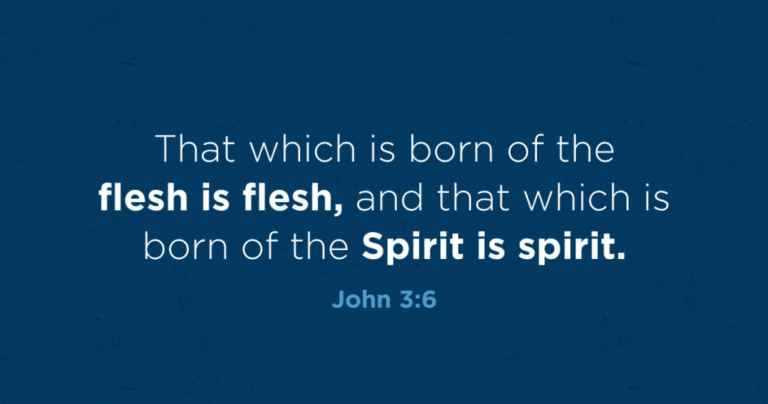How to Maintain the Joy of Our Salvation

Originally posted on the Bibles for America Blog.
When the love of the Lord Jesus first touched us and we repented and confessed His name, a deep joy we’d never known before filled our hearts. What a joy it was to be forgiven and born again! God wants all His children to continue to rejoice in His wonderful salvation for their whole lives. This should be the normal experience of every believer, as we see in 1 Peter 1:8: “You exult with joy that is unspeakable and full of glory.”
We’ve experienced such a wonderful salvation, and now we have access to all the riches of Christ. We should be overflowing with unspeakable joy. But while we can never lose our eternal salvation, we can sometimes lose the joy of our salvation. How does this happen? Let’s look at two possible causes.
1. Sin causes us to lose the joy of our salvation
Although we’re saved, we all still sin, fail the Lord, and disobey Him. The sins we commit cause us to lose our joy. After we sin, we feel that something’s wrong; we sense a barrier that’s come up between us and the Lord. Isaiah 59:2 tells us,
“Your iniquities have become a separation between you and your God, and your sins have hidden His face from you so that He does not hear.”
Our sins separate us from God because God is righteous; He can’t tolerate sin. This is why even a small transgression creates a barrier between us and God. Big or small, our sins cause us to lose the joy of our salvation.
2. Grieving the Spirit who indwells us causes us to lose the joy of our salvation
Romans 8:9 tells us clearly that “the Spirit of God dwells in you.” When we received the Lord Jesus as our Savior, He not only redeemed us, but He also came to dwell in us as the Spirit. Now we’re no longer alone; we have another Person living in us, and He has His own thoughts, feelings, and preferences. Whenever we go along with the Lord who lives inside of us, He’s happy. And when He’s happy, we’re happy.
In Ephesians 4:30, Paul says, “Do not grieve the Holy Spirit of God, in whom you were sealed unto the day of redemption.” Note 1 in the New Testament Recovery Version explains what it means to grieve the Holy Spirit:
“To grieve the Holy Spirit is to displease Him. The Holy Spirit abides in us forever (John 14:16-17), never leaving us. Hence, He is grieved when we do not walk according to Him (Rom. 8:4), that is, when we do not live according to the principle of reality with grace in the details of our daily walk.”
Let’s say, for example, we want to go to a certain place. But when we think about going, we feel uneasy. This feeling tells us that the Lord doesn’t want to go there. Though we may try to reason that it’s really okay, the uneasy feeling won’t go away; the Lord Jesus simply doesn’t want to go there. But say that instead of agreeing with the Lord and obeying Him, we go anyway. By not walking according to Him, we grieve Him and make Him unhappy. And it’s impossible for us to be happy when He’s grieved.
How can we recover and maintain the joy of our salvation?
As Christians, our joy can sometimes seem very elusive. We may even find ourselves crying out as David did, “Lord, restore to me the joy of Your salvation!” What can we do to recover our joy in such times, and how can we avoid losing it in the first place?
Just as a delicate flower is maintained and nurtured by the proper soil, water, and sunlight, our joy is preserved by the right conditions. Here are four healthy habits that can provide the right conditions to maintain our joy.
1. Confess our sins quickly
Whether our sins are small transgressions or serious offenses, we must confess them to the Lord. This includes grieving the Spirit. Whenever our conscience makes us aware that we’ve sinned, we shouldn’t wait to confess to the Lord. First John 1:9 says, “If we confess our sins, He is faithful and righteous to forgive us our sins and cleanse us from all unrighteousness.” We confess, and God is righteous to forgive us and cleanse us. When the problem of sin is dealt with and our fellowship with Him is restored, we experience the joy of salvation once again.
Learning to confess our sins without delay is a good habit to develop. There’s no reason to wait. The sooner we confess our sins and failures to the Lord, the sooner we can enjoy sweet fellowship with Him once more.
2. Take in God’s Word as our spiritual food daily
We all know how grumpy and irritable we can be when we haven’t eaten and are physically hungry, or even undernourished. We experience the same thing spiritually when we haven’t been eating. If we spend time daily to delight ourselves in His Word, the words we feed on become the gladness and joy of our heart, supplying us throughout our day.
Eating physical food is an enjoyment to us, but eating the Word of God brings us true and lasting inner satisfaction. A daily habit of taking in God’s Word as our spiritual nourishment will help us maintain our joy in God’s salvation.
3. Speak to the Lord in prayer all the time
When we come to the Lord, we don’t need to kneel down and solemnly recite a formal prayer. We can simply open our hearts and speak to the Lord Jesus in a personal way. At any time, day or night, we can talk to Him. In John 16:24, the Lord Jesus says to “ask and you shall receive, that your joy may be made full.” Speaking to Him in prayer about everything brings us joy. We can even pray by simply calling upon the name of the Lord.
By opening to the Lord in prayer every day and throughout the day—not only at set times or during major life events—we strengthen our loving relationship with Him. By staying in fellowship with Him, we maintain our joy.
4. Fellowship with other Christians regularly
Having fellowship with other Christians also helps us maintain our joy in the Lord, since one of the greatest joys of the Christian life is to come together with others who love Jesus.
Concerning the believers’ fellowship, in 1 John 1:3-4 the apostle John shows us that genuine Christian fellowship is not a duty or a ritual but a matter of joy:
“That which we have seen and heard we report also to you that you also may have fellowship with us, and indeed our fellowship is with the Father and with His Son Jesus Christ. And these things we write that our joy may be made full.”
Gathering with other believers to read the Bible, speak about Christ, and praise the Lord refreshes us, encourages us, and makes our joy full.
May we endeavor to build up these healthy habits in our daily lives. By confessing our sins, feeding on God’s Word, speaking to the Lord in prayer, and getting together to fellowship with other Christians, we can maintain an overflowing joy in our Christian lives.
For more on this subject, you can read chapter 2 of Basic Elements of the Christian Life, vol. 1 a book that has helped thousands of believers. If you’re an Australian resident, you can order the three-volume set for free here. You can also download these volumes from anywhere in the world here.
Subscribe to receive the latest posts






